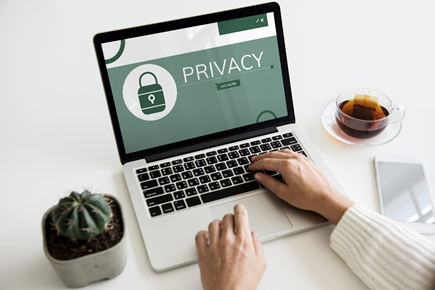The internet has connected our world in ways considered science fiction not many years ago. With so many ways to connect- from computers to smart phones and even video game consoles- it’s important to remember that, no matter your age, you need to be savvy about staying safe and secure while online. While you might know to steer clear of sketchy chain emails and to keep your antivirus, you may not realize just how vulnerable you can be from malicious thieves who have a wide variety of tips and tools available to gain access to your personal information.
To help keep your data and sensitive information safe, be mindful of the following:
- Password protection is priceless! From your wi-fi network to your email login, having unique and difficult to guess passwords can be one of the most effective ways to keep you and your family safe from most hackers. While it may seem inconvenient to have to remember multiple passwords, especially ones that contain countless letters and numbers at random, these are hard for a perpetrator to figure out. Write down your passwords and keep them in a safe but accessible place so they are near at hand when needed!
- Keep personal information off the web! While social media has pushed our lives into the forefront of public access, it’s smart to keep some of it personal. Birthdays and full names can be used to impersonate you on the internet or gain access to one of your accounts, through use of a security question. Setting your profiles to ‘friends only’ can help you remain social on Facebook without having to worry about someone simply googling your name and gaining public information that can be used to access your private information.
- Make sure your antivirus is up to date. There are countless antivirus programs available, some free and others with paid subscriptions. Find one that works for you, and make sure the program is updated regularly- many offer the option to set updates to automatic within their settings.
- Avoid unsure links and sites! Whether you’re searching for something on Google or see an ad or link on another website, only visit those that you know are safe and secure! Avoid shopping on unknown e-stores.
- Beware fake websites. When googling something, you may encounter websites that have been set up to replicate the look of the actual site, but with the purposes of stealing your information. Always make sure you’re on the correct website before entering personal data like credit cards or your address. Be sure your web address includes “https://” at the beginning, and ends with the correct end (.com, .org). The “S” stands for secure.
- If you encounter a strange popup, close it immediately! If your computer begins acting strangely, shut down your browser.
- Never download a file you’re unsure of! Approach any download with caution and only download documents and files from senders you’re familiar with.
- One of the most common forms of virus in circulation today is known as Ransomware. This will freeze your computer on a screen that demands you make a payment to the FBI or other law enforcement agency, usually through untraceable prepaid cards. No law enforcement agency in the US will ask you for payment like this, so if it happens, don’t panic- it’s just a virus! Turn off your device and get in touch with an antivirus specialist.
- Monitor young children and their internet access- It’s easy for someone who doesn’t know better to end up with a virus or putting private information in a publicly accessible location. Make sure their accounts are secure with strong passwords and don’t list any sensitive information.
- Don’t save your banking/shopping information online- If one of your accounts are compromised, a hacker won’t have access to your card numbers if they aren’t attached to the account. Also remember that many devices, such as phones and video game consoles, have stores built into them. While not a matter of strict security, an unattended child may make unsolicited purchases if the card information are saved permanently.
While it may seem overwhelming, staying safe on the internet is largely common sense. While you wouldn’t walk down a dark alleyway, avoid shady parts of the internet and stay on recognizable and secured sites. Shop with known retailers, minimize the amount of public information you put online, keep your passwords and anti-virus up to date, and enjoy the benefits of internet connectivity…we are living in the future!


